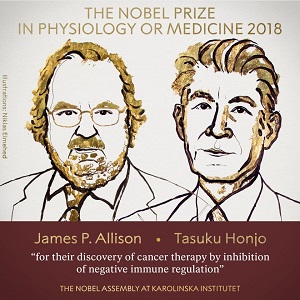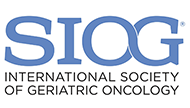October 08, 2020

Our immune system is designed to protect us not just from infections but also from cancer. In fact, the immune system has been recognized as one of the hallmarks of cancer with intense research worldwide. In recent years, a type of immunotherapy entitled “checkpoint inhibitors” has been developed with the intent of unleashing our immune system to better attack cancer cells. Immune checkpoints present on the T cells (lymphocytes) mediate immune responses. Some cancers are able to manipulate the function of these checkpoints triggering an “off response” on the T cells which protects the cancer cells from being targeted. The development of immune checkpoint inhibitors blocks this “off response” mechanism and promotes the patients’ immune system (T cells) to target and kill cancer cells.

Checkpoint inhibition often has a better toxicity profile (yet different) than chemotherapy and provides a better chance for long-term survival. However, the safety and efficacy of these treatments has been debated in the context of older cancer patients owing to “immunosenescence” i.e. age-related changes of the immune system that may affect immune responses. These changes include: autoimmunity (reduced ability of the immune system to differentiate between foreign antigens and normal tissues), immunodeficiency (reduced capacity of the immune system to protect) and immunodysregulation (disrupted regulation of the various components of the immune system).
Additionally, pivotal clinical trials have typically under-represented this sub-group. For example, in non-small cell lung cancer (NSCLC) trials, the patients enrolled were almost 10 years younger than the average age of diagnosis in the United Kingdom (UK).
Several pooled analyses from clinical trials and real-world datasets have not shown an increased risk of developing toxicity with such drugs among older patients compared with younger patients. The recent ELDERS study in the UK, primarily designed to investigate prospectively if older patients with advanced/metastatic NSCLC and melanoma had a higher risk of severe toxicity, showed no differences in its interim analysis; the final results are expected to be published soon. More studies in France and others countries are ongoing and results are awaited.
Whilst the current evidence deems these treatments safe for fit older patients, data is still lacking for those more vulnerable and frail. One concern with immunotherapy is the use of high dose steroids to manage its side effects, the long-term use of which may be particularly problematic for older patients.
Finally, immunotherapy with checkpoint inhibitors has revolutionised the treatment of many cancer types and older cancer patients are benefiting from this worldwide. While we further strengthen our knowledge about their effect in this sub-group of patients, research is now moving towards new treatment combination strategies, which are often associated with more toxicity. This highlights the need to understand their impact particularly on vulnerable older patients where appropriate assessments and patient selection is paramount.
References
- Gomes, F., Wong, M., Battisti, N., Kordbacheh, T., Kiderlen, T., Greystoke, A., Luciani, A. (2020) Immunotherapy in older patients with non-small cell lung cancer: Young International Society of Geriatric Oncology position paper. British Journal of Cancer, 123(6), 874-884.
- Hong, H., Wang, Q., Li, J., Liu, H., Meng, X., & Zhang, H. (2019). Aging, Cancer and Immunity. Journal of Cancer, 10(13), 3021–3027.



Leave A Comment
You must be logged in to post a comment.